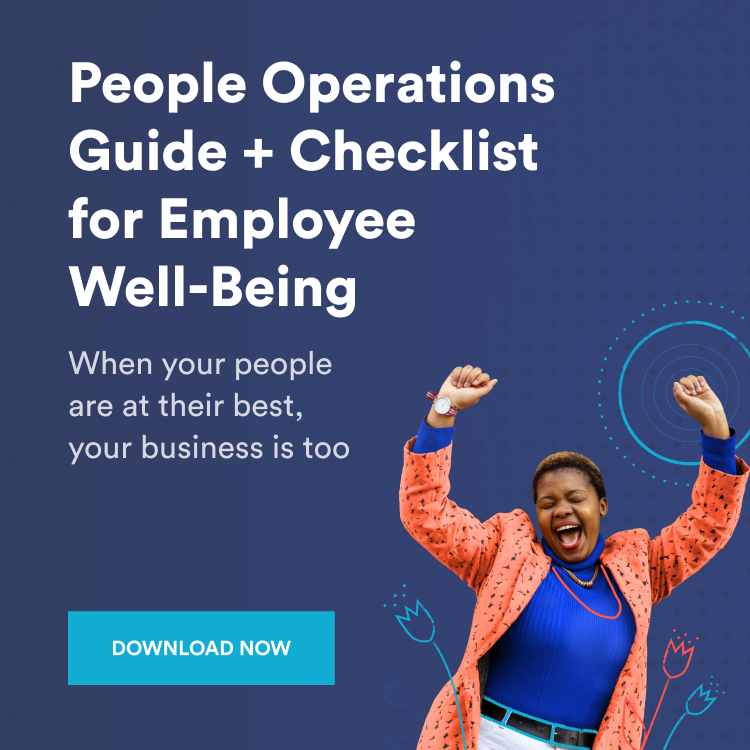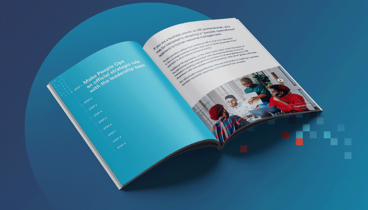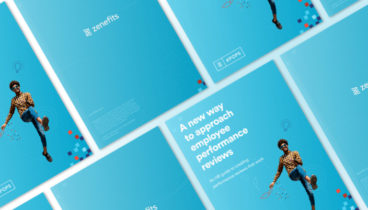Sleep deprivation among workers is too harmful and costly for employers to ignore. Try these strategies to help your staff get the sleep they need.

Here's what you need to know:
-
The American Academy of Sleep Medicine says adults should get between 7 and 9 hours of sleep each night if they want to be as healthy, productive, and alert as possible during the day
-
But based on sleep data from The Good Body, 35% of Americans are getting less than the recommended number of hours per night
-
With a significant number of adults not getting enough sleep, the CDC has declared sleep deprivation a “public health problem”
-
Work may not be thought of as a source of sleeplessness, but pressures from conditions in the workplace can rob employees of much-needed sleep
-
A lesser-known problem with sleep deprivation may be the high dollar cost it generates in lost productivity and healthcare treatment
-
Steps employers can take to help employees overcome sleep deprivation include providing natural light, offering flexible work schedules, prohibiting coerced or mandatory overtime, and more
The American Academy of Sleep Medicine (AASM) says adults should get between 7 and 9 hours of sleep each night if they want to be as healthy, productive, and alert as possible during the day.
But based on sleep data from The Good Body, 35% of Americans are getting less than the recommended number of hours per night.
In fact, according to Study Finds, a research reporting site, Americans are getting less and less sleep a year and having more difficulty falling asleep quickly. And those in the study who are getting enough sleep described their sleep quality as poor.
Sleep is vital because it allows the body to rest and recover for the next day’s activities, say health experts.
If sleep is so critical to everyone’s well-being, why aren’t more people getting enough of it?
Part of the answer lies in the amount of time Americans spend working. An American Time Use Survey (ATUS) shows that U.S. workers are swapping sleep time for work.
Of the 124,000 people surveyed, those who slept 6 hours or less worked 1.55 more hours on weekdays and 1.86 more hours on weekends and holidays.
Employers may want to pay close attention to these statistics because the U.S. workforce has a fair number of people dealing with sleep deprivation.
Adults are getting less sleep than needed
Reports differ on how much sleep people are getting on average at night. But based on data from SingleCare, people get fewer than 7 hours of sleep each night.
The Centers for Disease Control and Prevention (CDC) also place the number at fewer than 7 hours in a 24-hour period. And data from myriad sources show that some adults get fewer than 6 hours of sleep a night, while others struggle to get as little as 5.5 hours a night.
With a significant number of adults not getting enough sleep, the CDC has declared sleep deprivation a “public health problem.”
Why does sleep matter for employees?
If workers are “falling asleep at the wheel,” the problem could be more serious than employers think. As the statistics below show, people who don’t get enough sleep — or get too much in some cases — are at risk for developing certain chronic illnesses and having productivity issues on the job.
Health risks
SingleCare compiled these statistics on sleep-related health risks:
- Sleeping less rather than more than 7 hours a night increases the risk of obesity.
- Less than 7 hours of sleep and more than 9 hours of sleep increases the risk of diabetes.
- People who sleep fewer than 6 hours a night are 20% to 32% more likely to develop hypertension than those who get 7 to 8 hours of sleep a night.
- People can reduce up to 19% of car crash injuries by not driving under the following conditions: while drowsy, after having fewer than or equal to 5 hours of sleep, and between 2 am-5 am.
- While fewer than 7 hours of sleep and more than 9 hours of sleep are associated with a higher risk of death, longer sleep periods pose the highest risk of mortality.
Sleep deprivation is known to cause these symptoms:
- Less energy
- Daytime sleepiness
- Irritability
- Mood changes
- Cognitive setbacks
- Memory lapses
- Poor decision-making
- Shorter attention span
One note of caution: Sleep deprivation may not be the only cause of these symptoms.
Work-related risks
Work may not be thought of as a source of sleeplessness, but pressures from conditions in the workplace can rob employees of much-needed sleep.
The National Center for Biotechnology Information (NCBI) released these statistics on “psychosocial and job factors” that interfere with workers’ sleep:
- Lack of control. People without any control over their daily work routines lose 2.3 minutes of sleep a night.
- Time-based pressures. People who feel stressed out from dealing with employers’ unrealistic expectations about time sleep 8 minutes less per day than other workers.
- Irregular hours. People whose work hours are irregular lose 2.7 minutes of sleep on average per day compared to those who work regular hours.
- Commuting. People who spend between 30-60 minutes commuting one way to work sleep on average 9.2 minutes less a day compared to those whose one-way commute is 0 to 15 minutes. Workers with a longer commute, more than 60 minutes one way, sleep an average of 16.5 minutes less than those with short commutes.
Another note of caution: A serious case of sleeplessness could be a sleep disorder, which sometimes needs attention and treatment from a sleep expert.
What are the characteristics of a sleep disorder?
Sleep disorders are generally described as a group of chronic sleep conditions that negatively interfere with the quality of people’s lives. The quality and quantity of sleep people say they’re getting may be poor or they’re unable to function properly during the hours that they’re awake.
The Third Edition of the International Classification of Sleep Disorders lists 7 categories of disorders as:
- Insomnia, particularly chronic sleeplessness.
- Sleep-related breathing disorders, including obstructive sleep apnea and snoring.
- Central disorders of hypersomnolence, which include idiopathic hypersomnia and narcolepsy.
- Circadian rhythm sleep-wake disorders, including jet lag and delayed sleep-wake phase disorder.
- Parasomnias, such as sleepwalking, rapid eye movement (REM) behavior disorder, and sleep paralysis.
- Sleep-related movement disorders, like restless leg syndrome.
- Other sleep disorders.
According to SingleCare, a healthcare professional can diagnose a sleep disorder after a person has a thorough medical examination.
Sleep disorders aren’t uncommon
It’s very possible that one or more employees in an organization are struggling with a sleep disorder. In a 2021 SingleCare survey, 1/3 of respondents were diagnosed with a sleep disorder.
SingleCare highlights the results of other studies, which show that:
- 70 million Americans have chronic sleep problems.
- Sleep disorders affect 50 to 70 million adults in the U.S.
- Obstructive sleep apnea affects 25 million adults in the U.S.
- 30% to 40% of adults in the U.S. report experiencing insomnia symptoms each year.
- 48% of Americans report snoring during the night (ASA, 2021).
Although binge-watching TV episodes or online programs could hardly be classified as a sleep disorder, it causes 88% of American adults to lose sleep.
Sleeplessness causes lost revenue due to lost productivity
A lesser-known problem with sleep deprivation may be the high dollar cost it generates in lost productivity and healthcare treatment.
Fatigue, a consequence of sleep deprivation, costs employers $136.4 billion a year in lost productivity, according to a recent report by BetterUp.
Fatigue, a consequence of sleep deprivation, costs employers $136.4 billion a year in lost productivity, according to a recent report by BetterUp.
In fact, employment specialists estimate that individual employers pay about $1,967 per employee each year in fatigue-related losses in motivation and productivity, and in healthcare coverage.
The following data from SingleCare also lays out the high cost of sleeplessness:
- The U.S. loses up to $411 billion a year due to insufficient sleep — the highest loss in the world.
- Sleep deprivation is known to contribute to the 100,000 deaths that medical errors cause in U.S. hospitals each year.
- The cost of in-center sleep studies ranges from $500 to $3,000, and in-home sleep tests cost on average between $300 and $600.
- Treatment for insomnia, which includes a generic sleeping pill and behavioral therapy, costs upward of $1,500 per year.
Since sleeplessness is costly when it comes to health and productivity, employers can learn how to step in and help resolve the problem.
What can employers do to help employees get enough sleep?
BetterUp has a virtual platform dedicated to coaching employees about getting enough sleep.
The company also recommends that employers help workers overcome sleep deprivation by:
- Promoting sleep-friendly initiatives, like working under natural light, eating nutritious food, and exercising.
- Encouraging employees to work only during work hours to keep them from blurring the line between work and personal time, to get them to complete their work during work hours if possible, and to help them cut down on the amount of time checking computers and smartphones for messages.
- Offering flexible work schedules to accommodate employees’ work-time preferences, since some may be “night owls,” while others may be morning people.
- Investing in learning and development programs that focus on getting enough sleep.
The CDC also recommends adjusting work schedules to allow employees to get the sleep they need. In addition, the centers recommend educating shift workers on how to improve their sleeping habits.
Harvard University’s Get Sleep platform says that employers can adopt policies and practices that promote employees’ good health. Recommendations include:
- Installing bright lights onsite to foster mental alertness.
- Offering healthy foods in vending machines to aid restfulness.
- Providing access to exercise facilities (or offering health and wellness programs).
- Providing space onsite for naps.
- Prohibiting coerced or mandatory overtime.
Employers can start resolving the problem of sleeplessness in the workplace by eliminating the NCBI’s psychosocial and job factors, which stress out workers.
The importance of taking the advice of sleep experts
As studies show, sleep deprivation is too harmful and costly for employers to ignore. By taking the advice of sleep experts, employers can maintain a workplace that not only promotes the benefits of getting a good night’s sleep, but also supports them.







